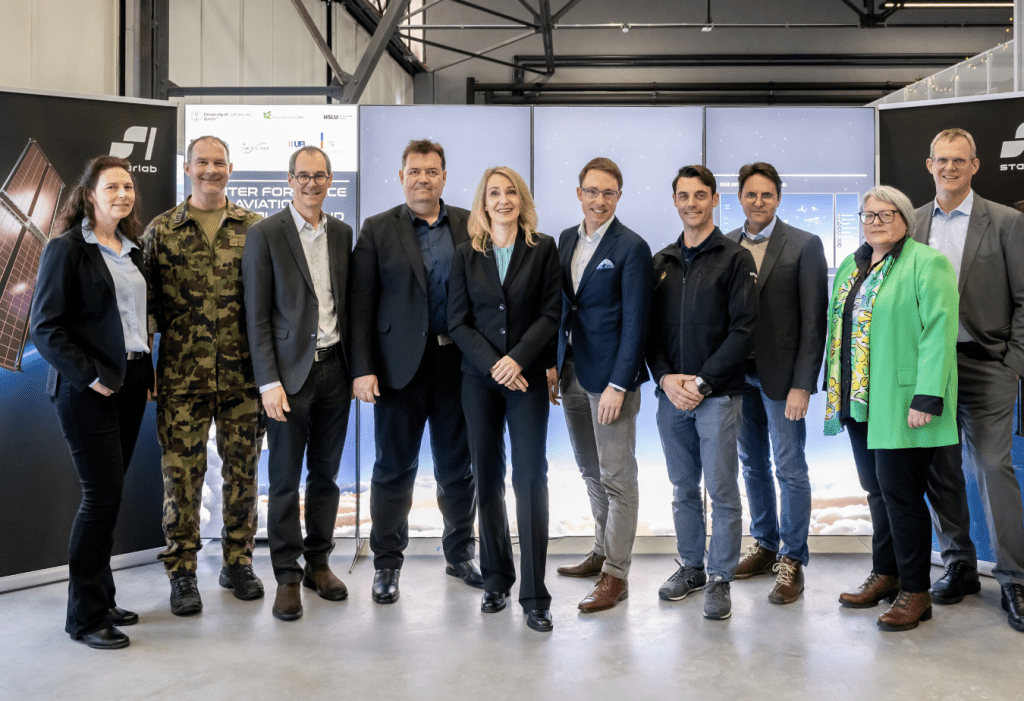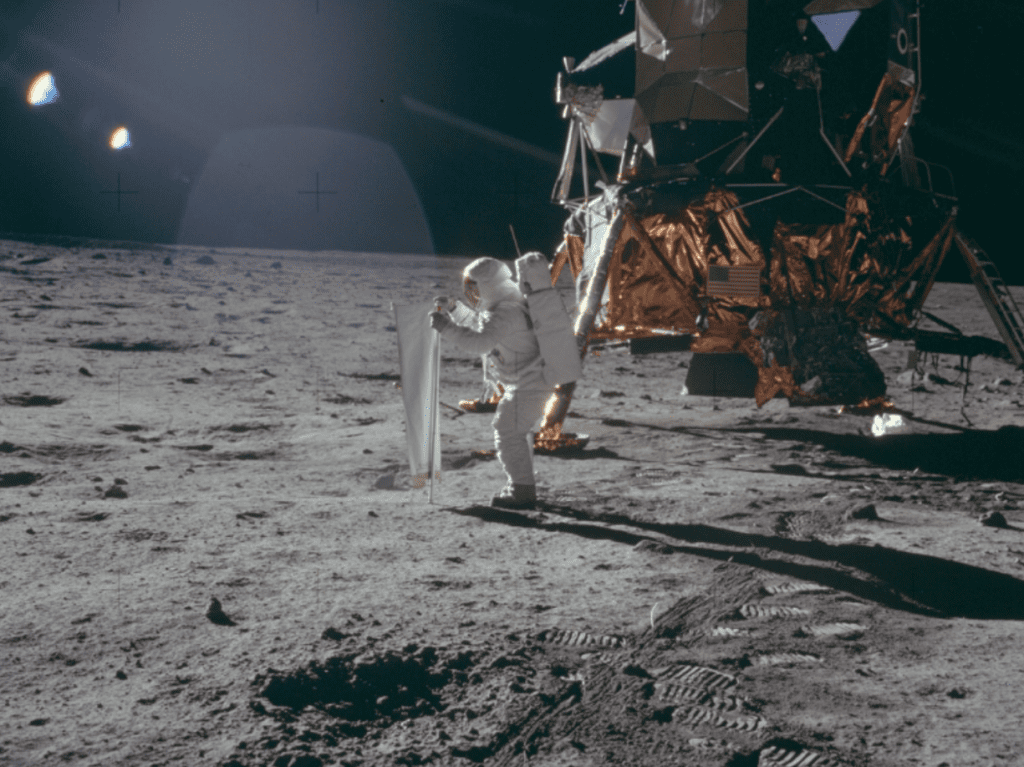
Renowned for its precision, reliability and world-class innovation, Switzerland has long been a leader in sectors such as finance, life sciences and advanced engineering. Today, it is making its mark in a new frontier: space.
Thanks to a dynamic ecosystem that combines academic excellence, public-private collaboration, and dee-tech entrepreneurship, Switzerland is becoming a launchpad for space innovation projects. From orbital manufacturing and data analytics to space-based biotech and sustainability, the country is positioning itself at the forefront of global space initiatives.
“Switzerland’s stable political environment, neutrality and high standard of living are fundamental pillars for the success of the Swiss space ecosystem.”
— Dr. Renato Krpoun, Swiss State Secretariat for Education, Research and Innovation SERI
A National Strategy Anchored in Innovation and Collaboration
Switzerland’s ascent in the space economy is not incidental — it is the result of a coordinated national effort that spans:
- World-class research institutions such as ETH Zurich, EPFL, University of Zurich and University of Bern
- Strong government backing through strategic initiatives like the newly launched Center for Space and Aviation (CSA)
- A growing deep-tech private sector, with countless startups and spin-offs energising the ecosystem
- International partnerships, including with ESA and NASA
Over 30% of the Swiss space ecosystem comprises start-ups and spin-offs while established players like Beyond Gravity and Swissto12 provide proven industrial expertise1. This is mainly due to Switzerland’s strengths in key technologies — from high-precision mechanics to miniaturised optics and atomic clocks — detailed in the Switzerland Innovation factsheet, which outlines the pillars of its upstream and downstream capabilities.
A key milestone for the space ecosystem was the creation of the European Space Deep-Tech Innovation (ESDI) Centre, jointly established by the European Space Agency (ESA) and the Paul Scherrer Institute (PSI) in 2024 Located at the Switzerland Innovation Park Innovaare, ESDI is a springboard for advanced materials, data science, and quantum technologies, connecting Swiss innovation directly to ESA’s R&D priorities.
Starlab selects Switzerland for its European headquarters

Image credit: Starlab Space
In early 2024, Starlab Space, the commercial modular space station led by Voyager Space and Airbus, chose Switzerland Innovation Park Zurich as its European HQ.
This landmark decision places Switzerland at the epicentre of one of the most ambitious projects in the global space sector today.
Starlab is designed to replace the International Space Station as a next-generation research platform in low Earth orbit (LEO). As a privately operated station, it will host experiments and industrial applications spanning life sciences, materials science, in-orbit manufacturing and Earth observation. The Zurich-based headquarters will serve as a strategic base for European operations, R&D collaboration and international partnerships with space agencies and private actors alike.
Clearspace leads in sustainable space operations
Perhaps no project better captures Switzerland’s commitment to responsible space exploration than Clearspace. Headquartered in Lausanne, Clearspace is leading the Clearspace-1 mission, the world’s first initiative to actively remove a piece of space debris from orbit.
Endorsed by the ESA, Clearspace-1 will capture and deorbit a defunct satellite component, addressing one of the most pressing challenges of modern spaceflight: orbital congestion. The mission exemplifies Switzerland’s strengths in both technical innovation and its ethical, long-term approach to sustainability in space.
With its roots in Swiss engineering precision and research excellence, Clearspace is now a global leader in active debris removal — a field critical to ensuring the future safety and viability of space operations.
CSA – A unified voice in the global space dialogue

Close collaboration among academy, industry, and government is key to the success of Switzerland’s space ecosystem.
Image credit: CSA
To consolidate and advance its growing activities in the space sector, Switzerland launched the Center for Space and Aviation Switzerland and Liechtenstein (CSA) in 2024. Established as a federal foundation and backed by the Canton of Zurich, the CSA provides a strategic platform to align national and regional initiatives and to foster collaboration across disciplines and institutions.
The UZH Space Hub and the Center for Space and Aviation are far more than a simple research collaboration – they embody the vision and mission to shape the New Space Economy for future generations through close cooperation with numerous partners and institutions.
Prof. Dr. Elisabeth Stark – VP Research, University of Zurich
Bringing together eight core partners, including University of Zurich, Lucerne University of Applied Sciences and Arts and institutions in Liechtenstein, the CSA enables Switzerland and Liechtenstein to speak with one voice in the global space dialogue. It supports infrastructure development, facilitates knowledge transfer and promotes public-private collaboration across the full space value chain — from advanced research to commercial application.
Its creation signals a new phase for Swiss aerospace: one of alignment, scale and shared ambition; ensuring that Switzerland and its partners speak with a united voice in international space discussions.
Regional Ecosystems Driving Space Commercialization
Switzerland’s Emerging Space Valley
Spanning the Greater Zurich Area and into the Rhine Valley, Switzerland’s “Space Valley” is a corridor of more than 1,700 firms across MedTech, AI, advanced manufacturing, and biotech — many now targeting in-orbit applications.
In microgravity, Swiss companies are developing technologies for next-gen semiconductors, organoids, and climate monitoring systems. The region’s precision engineering tradition, coupled with its R&D intensity, makes it a natural engine for space-based innovation.
Pioneers in Planetary and Materials Science

Buzz Aldrin unfurls the solar wind sail of the University of Bern during the first landing on the Moon on July 21, 1969. NASA, Apollo Image Archive
Switzerland’s leadership also extends to planetary science and spacecraft materials. Universities of Applied Sciences in Bern (BFH) and HES-SO are advancing microgravity research, sustainable materials, and simulation technologies to support future deep-space missions.
Meanwhile, the Greater Geneva Bern Area (GGBa) is gaining recognition for its aerospace innovation cluster — home to established players like RUAG Space and emerging tech firms applying space innovation across logistics, environment, and analytics.
Startups and Deep-Tech Champions Fueling Niche Innovation
Switzerland’s startup scene is playing an outsized role in global spacetech. It leverages the country’s historic strengths in innovation, precision engineering, and international collaboration. Many of these companies – often spun out of Swiss universities – play a global role in space exploration and industry, for example:
- NematX produces materials that can be used with high precision in manufacturing parts for the ISS, NematX is integral to advancing manufacturing capabilities for space applications, thereby allowing Switzerland to directly contribute to the sustainability and expansion of human presence in space
- Klepsydra Technologies develops AI systems and data processors that are resilient to space conditions, such as harmful radiation. Klepsydra thereby ensures Swiss involvement in high-profile ESA projects and contributing to the safety and success of missions.
- Beyond Gravity’s payload fairings are used on almost all American and European rockets – except for SpaceX – demonstrating Switzerland’s contribution to global space missions.
Looking ahead: Switzerland’s trajectory in the space economy
Switzerland’s space leadership is not built on legacy but on vision. The country combines political neutrality, research excellence, and entrepreneurial drive in a way few others can. It offers:
- A stable regulatory and financial environment
- Deep scientific and engineering talent pools
- Access to global markets via strong international ties
- A culture of long-term thinking and sustainability
“The national space ecosystem is built on the shoulders of strong fundamental research in Switzerland, particularly in areas with diverse applications such as engines or sensors. This research serves as the genesis for many remarkable products and innovative start-ups, which move on to become technological leaders in their respective niches.”
- — Prof. Dr. Thomas Zurbuchen, ETH Zurich | Space
As the space economy becomes more commercial, interdisciplinary, and Earth-connected, Switzerland is well-positioned to shape its evolution. From hosting next-gen space stations to enabling biomedical breakthroughs in orbit, the country is no longer just participating in space — it is helping define what comes next.
Inside Telecom provides you with an extensive list of content covering all aspects of the Tech industry. Keep an eye on our Press Releases section to stay informed and updated with our daily articles.